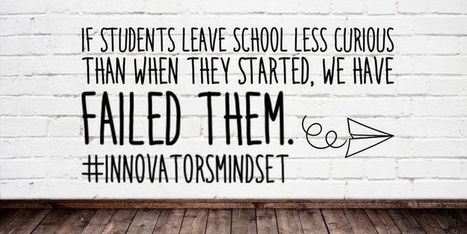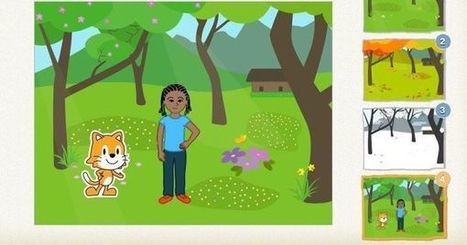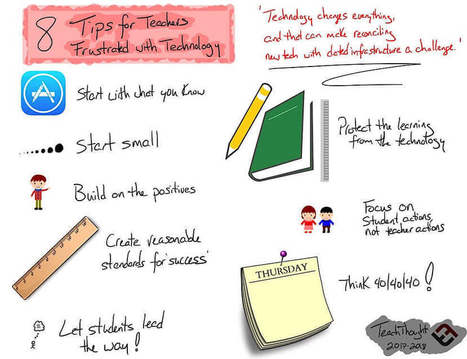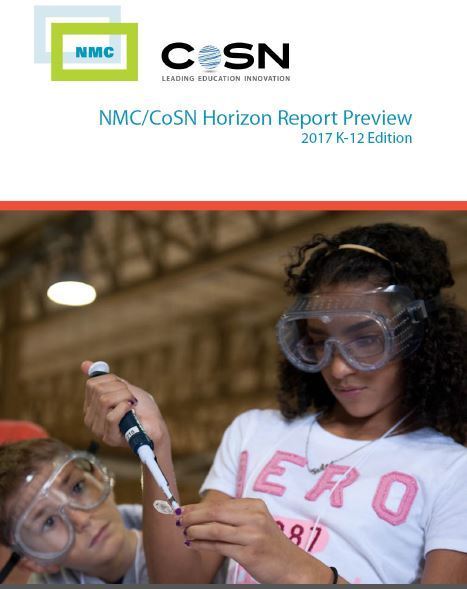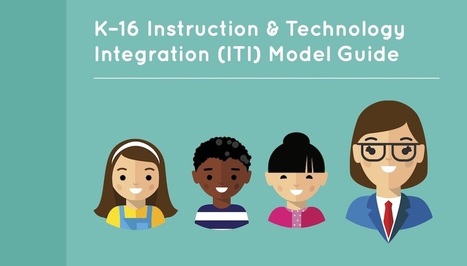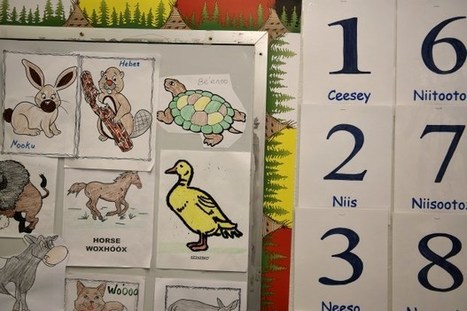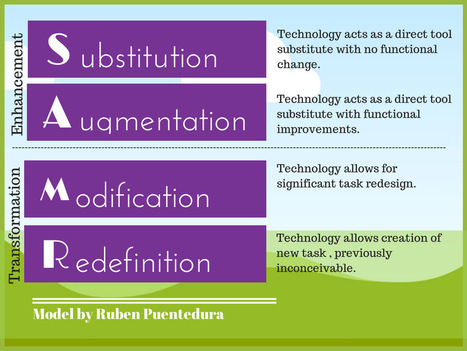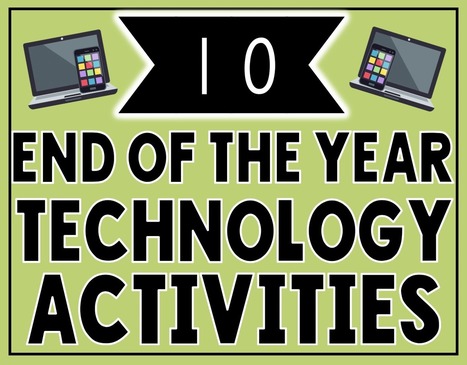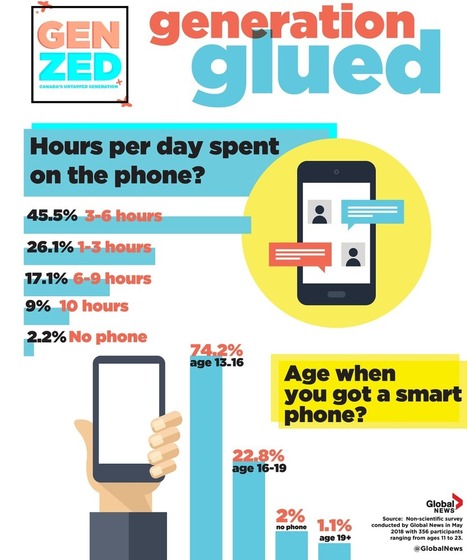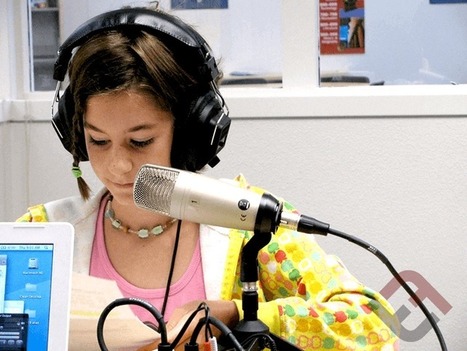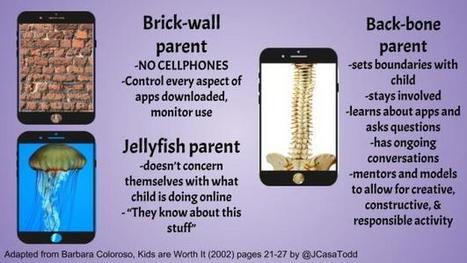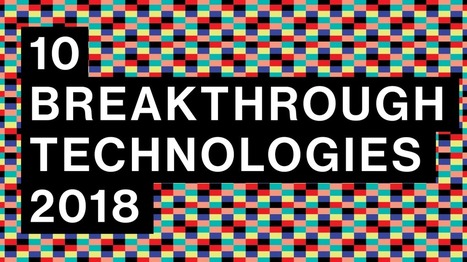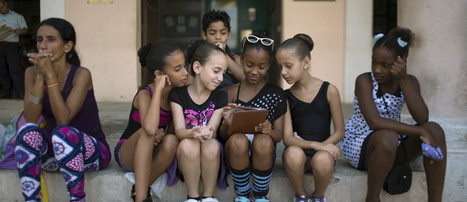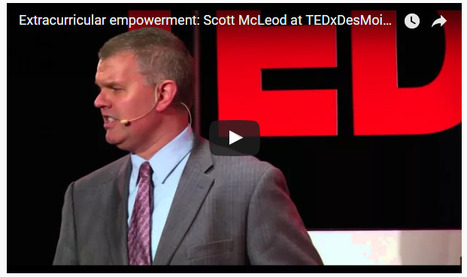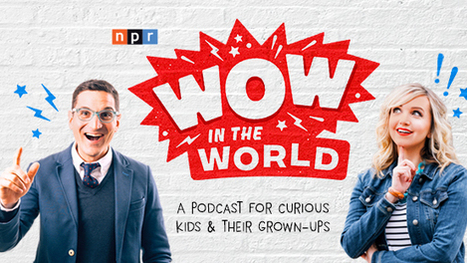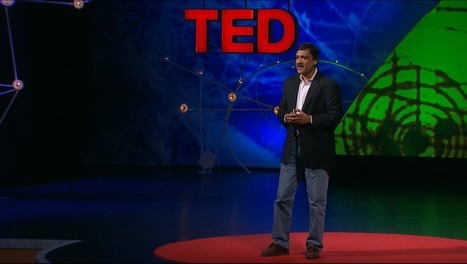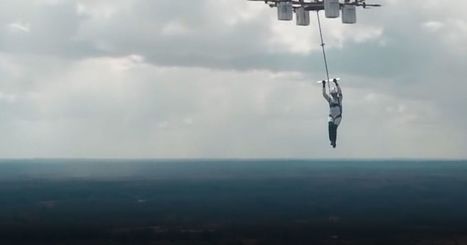 Your new post is loading...
 Your new post is loading...

|
Scooped by
John Evans
|
Ajay Bhatt was struggling to upgrade his computer when he began to see the need for one plug to rule them all.

|
Scooped by
John Evans
|
If you're looking to reboot your tech behaviors in 2019, here are a few ways to use your smartphones, laptops, apps, and feeds without getting used by them.

|
Scooped by
John Evans
|
We've gone through hundreds of resources to assemble these guides which are meant to help you learn, teach, and share as much as possible.

|
Scooped by
John Evans
|
Have you ever heard a dial tone or a busy signal? How did we call someone before speed dial and push-button telephones, but after people stopped needing to speak with a switchboard operator? Behold the rotary dial:

|
Scooped by
John Evans
|
The term “digital immigrants” and “digital natives” is almost as annoying as the fights are about the terminology. These terms are often credited to Marc Prensky, and from when I have had the opportunity to have heard him speak, he doesn’t believe that kids have an innate ability to use technology over adults. They have not known a world with anything different. It made sense to me when I thought of my parents who came to Canada as immigrants. They knew one life and then thrust themselves into another. Where growing up in Canada, I have not known anything but what it is like to live in that country. It doesn’t mean that one group has the ability over another, but their past experiences do shape a lot of what their future looks like. Although my parents were immigrants to Canada, I saw them as less traditional than many people who lived here their entire life.
So then why do we continue to say things like, “Kids are sooooo much better with technology than adults are”? Yes, many kids have never known anything BUT a world with iPhones and YouTube, but the same adults have lived in that world the same amount of time kids have, and sometimes, even more. Add the years of experience in other parts of life; there is no reason that kids should be better at technology than adults.
The difference between kids that are deemed better than adults with technology is not some innate ability; it is their willingness to push buttons. To see what happens. To act on their curiosity.12 That’s it.

|
Scooped by
John Evans
|
An exciting array of online tools can help children make up and share their own stories.

|
Scooped by
John Evans
|
Technology supports both synchronous and asynchronous learning, which opens up flexibility and choice of when to learn. Audio podcasts allow learners to listen to recordings wherever they choose to, and many do this as they commute to or from work. Webinar technologies have enabled group verbal conversations to take place online, along with chat functions where users can type short messages to each other. Videos can provide helpful ways to learn visually and at your own pace with the ability to rewind and replay. Indeed through YouTube videos I learned how to mend my washing machine! As a result, there are now a multitude of online learning opportunities available, many of which are free. Choose from informal or formal, short or extended courses, and learn with others or independently. Develop or learn new skills, take up a new hobby or engage in a full online course.
Below are a just a selection of some of the online courses now available.
With regard to technology, education has to be in this for the long haul regardless of short-term loss as everything seeks to reconcile itself with everything else, much in the same way that the purpose of education is long-term–it should seek to improve the arc of students’ lives and the condition of their communities.
How much work it takes to make that happen is only one part of the timeless struggle of raising human beings.
Via Nik Peachey

|
Scooped by
John Evans
|
What are our screens and devices doing to us? Psychologist Adam Alter studies how much time screens steal from us and how they're getting away with it. He shares why all those hours you spend staring at your smartphone, tablet or computer might be making you miserable -- and what you can do about it.

|
Scooped by
John Evans
|
The NMC/CoSN Horizon Report > 2017 K-12 Edition is a collaborative effort between the New Media Consortium and the Consortium for School Networking (CoSN) and made possible by mindSpark Learning (formerly known as Share Fair Nation).
The preview provides summaries of the trends, challenges, and important developments in educational technology which were ranked most highly by the 2017 expert panel and will be featured in the official NMC/CoSN Horizon Report > 2017 K-12 Edition set to be released in August, 2017. View the Panel of Expert’s work and discussions in the 2017 Horizon.k12 Workspace.

|
Scooped by
John Evans
|
In order to meet the needs of all students–and to equip teachers with a consistent process to do so–Superintendent Dr. Philip Hickman created a new instructional model. The K-16 Instruction and Technology Integration Model, or “K-16 ITI” is transforming teaching and personalizing learning for students in Mississippi and beyond.
We teamed up with Dr. Hickman to design an easy-to-use guide so that educators across the country can benefit from this model.

|
Scooped by
John Evans
|
When Marlin Spoonhunter returned to the Wind River Indian Reservation in Wyoming after decades working as an educator in Montana, he realized that something crucial, something elemental to his Northern Arapaho identity, had escaped him — the language."

|
Scooped by
John Evans
|
The SAMR Model for integrating technology into teaching, developed by Dr. Ruben Puentedura, has gained a good deal of exposure in recent years. “SAMR” is an acronym that stands for Substitution, Augmentation, Modification, and Redefinition. The SAMR model provides a technique for moving through degrees of technology adoption to find more meaningful uses of technology in teaching and move away from simply using “tech for tech’s sake”.
We recently discussed the SAMR model during an Academic Technology Work Group meeting at The College of Westchester. We examined the video, SAMR in 120 Seconds. One thing that really struck me is how much the example helped, so I made it a point to gather and/or create some more examples.
|

|
Scooped by
John Evans
|
Are you looking for educational activities to keep your students engaged as the academic year comes to a close? Perhaps you are looking for ways students can review material or reflect on their year. Here are 10 easy to implement ideas that involve the use of technology:

|
Scooped by
John Evans
|
As technology evolves, so does its role in industry and society. Its impact is felt across nearly all industries with education being one of the highlights with record worldwide investment in EdTech companies in 2018 so far. With an increase in educational technology-based solution providers, families are increasingly becoming involved in their children’s education. Independent learning methods facilitated by technology allow children to have a more personalized experience as well as allowing for more transparency for parents to monitor progress and even learn together. Here are 5 impacts of educational technology on families:

|
Scooped by
John Evans
|
It’s hardly fair to point a finger at the young cohort of 13- to 23-year-olds known as generation Z and accuse them of being “addicted” to their phones. After all, you’d be hard-pressed to find an adult these days who isn’t constantly Googling during a conversation or checking the news during dinner.
Yet, generation Z is often on the receiving end of criticism for the amount of time they spend using technology. Some of this is fair — it’s estimated that they log about 10 hours a day online (an informal Global News survey found that number to be closer to six hours) and a whopping 96 per cent own a smartphone — but this is less an “addiction” than it is a way of life, experts argue.
"Curiosity killed the cat, but it made each of us who we are today. Without curiosity, none of us would learn very much at all. Learning is based more on curiosity than any other human characteristic. Children who are curious are always interested in discovering more. Children who lose their curiosity usually turn off and tune out. Children are naturally curious, but sadly, rigid school systems and curricula have often knocked this out of them by the time they graduate."
Via EDTECH@UTRGV

|
Scooped by
John Evans
|
Several years ago, I was a part of a community network of parents who brought Barbara Coloroso to our school community to talk about parenting from her book, “Kids are Worth It”.
I will NEVER forget her talk as it really resonated with me as a daughter, a mother, and an educator. Now, as I prepare my own talk for a school community in a few weeks (kind of crazy how it has come full circle for me), I am thinking about Coloroso’s parenting message as it applies to cell phone conversations.
She talks about three kinds of parenting styles: the brickwall parent, the jellyfish parent and the backbone parent.

|
Scooped by
John Evans
|
Every year since 2001 we’ve picked what we call the 10 Breakthrough Technologies. People often ask, what exactly do you mean by “breakthrough”? It’s a reasonable question—some of our picks haven’t yet reached widespread use, while others may be on the cusp of becoming commercially available. What we’re really looking for is a technology, or perhaps even a collection of technologies, that will have a profound effect on our lives.
For this year, a new technique in artificial intelligence called GANs is giving machines imagination; artificial embryos, despite some thorny ethical constraints, are redefining how life can be created and are opening a research window into the early moments of a human life; and a pilot plant in the heart of Texas’s petrochemical industry is attempting to create completely clean power from natural gas—probably a major energy source for the foreseeable future. These and the rest of our list will be worth keeping an eye on. —The Editors

|
Scooped by
John Evans
|
We need to teach our children these eight skills as part of their education in digital citizenship.

|
Scooped by
John Evans
|
IN 1953 B.F. Skinner visited his daughter’s maths class. The Harvard psychologist found every pupil learning the same topic in the same way at the same speed. A few days later he built his first “teaching machine”, which let children tackle questions at their own pace. By the mid-1960s similar gizmos were being flogged by door-to-door salesmen. Within a few years, though, enthusiasm for them had fizzled out.
Since then education technology (edtech) has repeated the cycle of hype and flop, even as computers have reshaped almost every other part of life. One reason is the conservatism of teachers and their unions. But another is that the brain-stretching potential of edtech has remained unproven.
Today, however, Skinner’s heirs are forcing the sceptics to think again (see article). Backed by billionaire techies such as Mark Zuckerberg and Bill Gates, schools around the world are using new software to “personalise” learning. This could help hundreds of millions of children stuck in dismal classes—but only if edtech boosters can resist the temptation to revive harmful ideas about how children learn. To succeed, edtech must be at the service of teaching, not the other way around.

|
Scooped by
John Evans
|
A video I often show at professional learning sessions I facilitate is the TEDx Talk “Extracurricular Empowerment” by Scott McLeod (@mcleod).
Mr. McLeod talks about the powerful, “at home learning” students are doing with technology. He asks the questions “how can we take the extracurricular and turn it into the curricular?” This really is a profound statement as it, in many ways, answers the question posed earlier, “technology changes so fast, how can I keep up?” The answer really comes down to this….. you don’t have to keep up! If we empower our students and focus on their skills, strengths, affinity, and talents with technology we don’t have to “know it all”, but rather just focus on what the students already know and do, and bring that into the classroom.

|
Scooped by
John Evans
|
"Wow in the World is a place where we can tap into the crazy cool things that are happening all around us, every day!" says Thomas. "We want to help spark conversations between kids and other kids and also with their grown-ups that will ultimately lead to their own big discoveries."
Each episode begins with a series of questions that lead to an explanation about a new amazing scientific discovery or finding. For example, "How long would it take to get to the closest star outside our solar system?" or "How did we Homo sapiens come to dominate the planet?" or "How do astronauts poop in space?" Through comedy and conversation, along with voices from real kids, Mindy and Guy make the news fun and interesting."

|
Scooped by
John Evans
|
In the last ten years, technology has changed the way we work and communicate with others — and it’s also changed how we interact in the classroom. In fact, some educators argue that technology can improve the classroom by eliminating the need for a physical one, and allow students to learn remotely, from wherever they do their best work. While it’s still too early to know if this is the most effective way to teach, it’s important to stay-to-update on these innovations in education and see what we can learn from them. In these TED talks, students and educators share their …

|
Scooped by
John Evans
|
This is the world's first drone jump. A 28-rotor drone lifted a man about 1,000 feet in the air before he let go.
The stunt shows the drone's potential in rescue operations, where they could be used to save lives.
|
 Your new post is loading...
Your new post is loading...
 Your new post is loading...
Your new post is loading...















